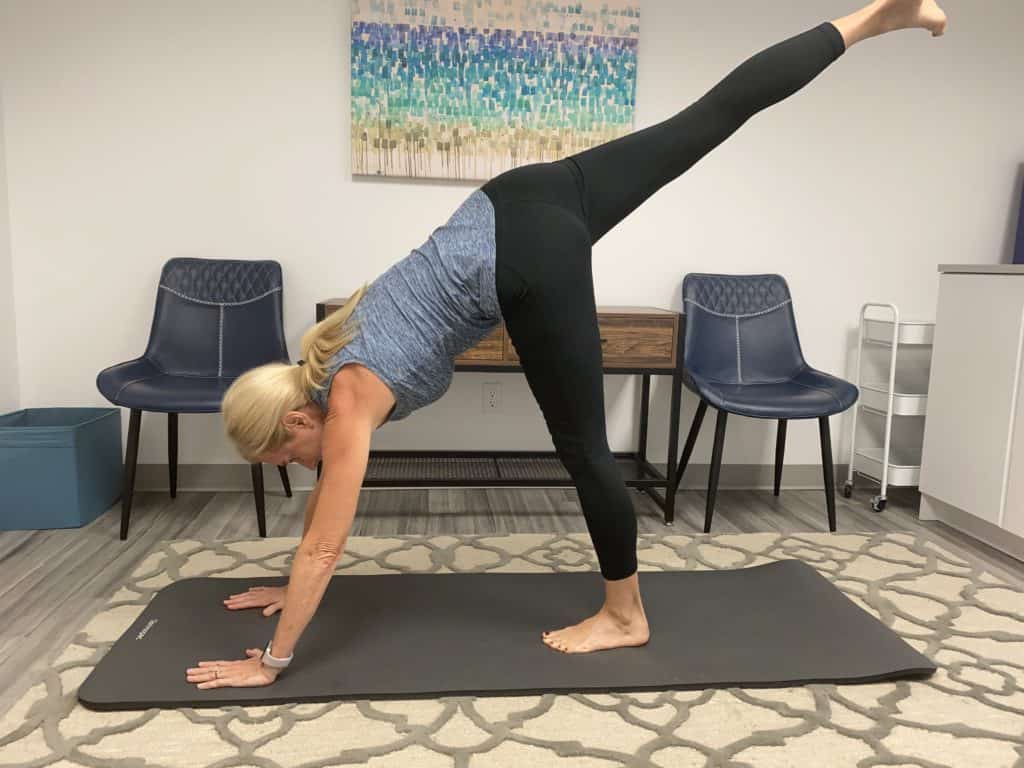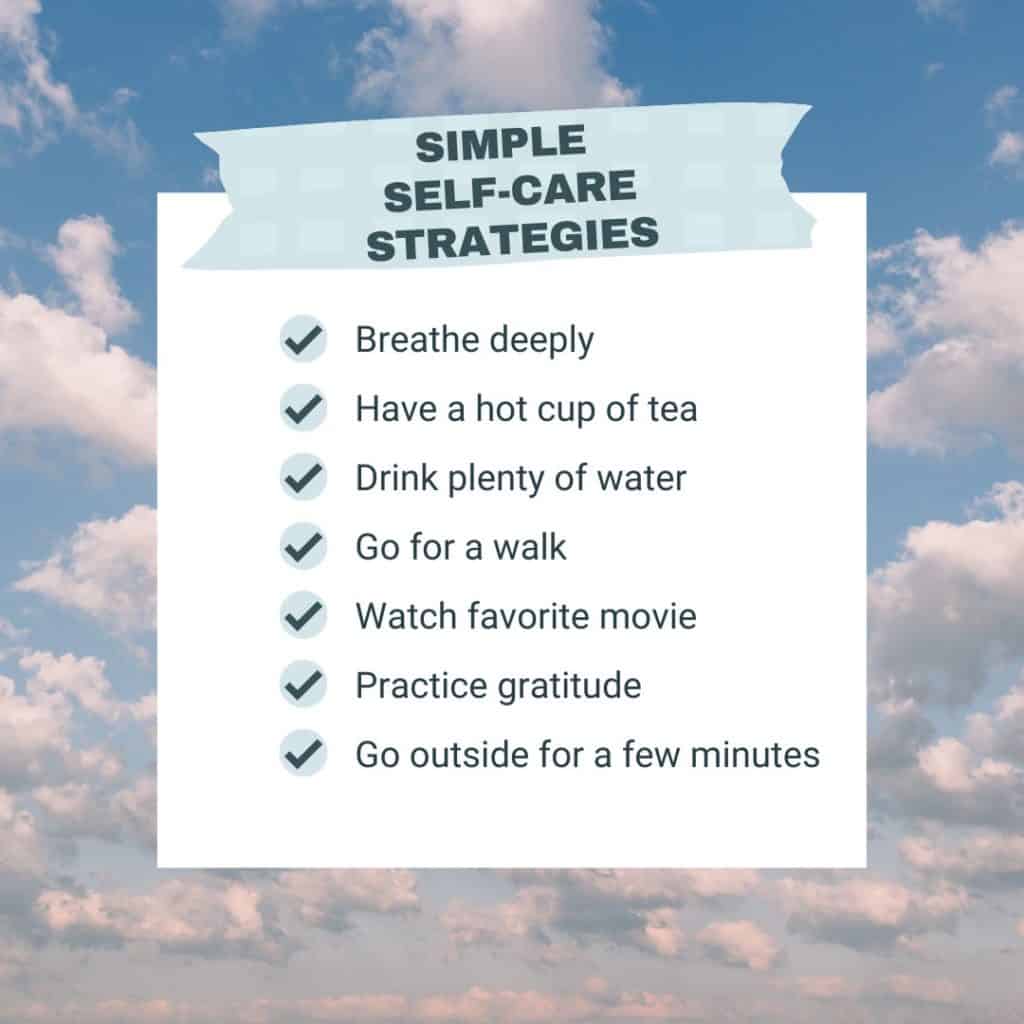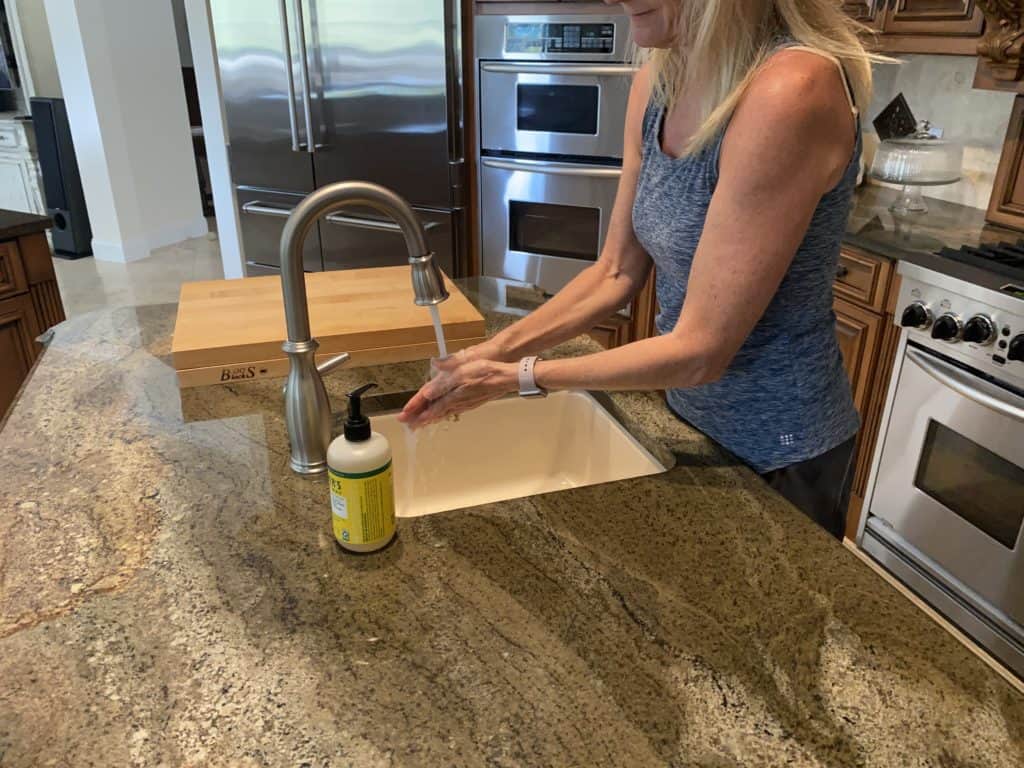55 Healthy Habits: Simple Habits for Better Health
Are you looking for ways to improve your health? If so, you’re in luck! In this article, we will discuss 55 simple healthy habits that can have a big impact on your well-being.
Habits are automatic actions that are taken every day without much thought. Creating habits that support health is easier than you think.
These are healthy habits that anyone can do, no matter what their age or fitness level is. So let’s get started creating a healthier lifestyle!
Healthy Morning Routines
Getting the day started with healthy habits is easier than you think. Try one or more of these strategies to set yourself up for success.

Spend some time outdoors in direct sunlight soon after waking up
This helps to regulate your body’s natural circadian rhythm. This can be a game-changer when it comes to getting good sleep the next night.
Don’t skip breakfast
We’ve all heard the saying “breakfast is the most important meal of the day”. Eating a healthy breakfast helps to jump-start your metabolism and provides you with the energy you need to power through your morning.
Drink a glass of water first thing in the morning
Starting your day with a glass of water helps to rehydrate your body and wake up your digestive system. It’s also a great way to get your daily recommended intake of water.
Healthy Eating Habits
Healthy eating is critical to maintaining a healthy lifestyle. Food is fuel for our physical activity and helps to support immune function, energy levels, and cardiovascular health.
Read on to learn about creating healthy habits around your food choices.
Eat more fruits and vegetables
Fruits and vegetables are packed with nutrients that are essential for good health. Aim to fill half of your plate with vegetables at most meals. This will ensure that you feel full and discourage eating “empty calories” that can lead to unwanted weight gain.

Sip water all day long
Your body needs time to absorb all the fluid you consume, so it can be used as needed and not simply flushed out.
Carry a water bottle with you and take frequent sips. This will make it easier to meet your fluid intake goal and ensure the water is used as needed by your body. Staying hydrated can also help you maintain a healthy weight.
Eat more whole foods
Contribute to a healthy lifestyle by eating more whole foods such as fruits, vegetables, whole grains, lean proteins, and healthy fats.
Whole foods are minimally processed and contain all the nutrients found in their natural state. They are a healthy and delicious way to fill up on the vitamins, minerals, fiber, and antioxidants your body needs.
Get plenty of fiber in your diet
Fiber is an important nutrient for overall health. It helps promote bowel regularity, maintain healthy blood sugar levels, and lower cholesterol.
Most people need at least 25 grams of fiber per day. Good sources of fiber include fruits, vegetables, whole grains, beans, and legumes. Eating plenty of fiber can help you maintain a healthy weight.
Reduce or eliminate alcohol
Cutting out alcohol reduces the number of empty calories you consume during the day which can
help with weight loss. Alcohol also causes sleep disruption which can leave you feeling tired during the day.
If you do drink, limit yourself to 1-2 drinks per day.
Eat more beans
Beans are inexpensive and loaded with vitamins, minerals, and antioxidants that support health. They also contain complex carbohydrates which help you feel full and prevent overeating.
Replace unhealthy foods in your diet
Swap out unhealthy foods like fried foods, soft drinks, or ice cream with healthier foods.
If you’re craving something salty and crunchy, try having a handful of nuts that are full of healthy fats. Replace unhealthy sugar and artificial sweeteners with fresh fruit.
These simple changes can contribute to a healthy lifestyle.
Meal prep
The benefits of preparing meals in advance include saving money, eating healthier, and reducing stress.
You can cook large batches of food on the weekends and then portion them out for the week ahead, which will save you time too.
Avoid processed foods
You may need to eat convenience foods occasionally. However, you should limit the number of processed foods you eat including processed meats and sugar-sweetened beverages.
These foods are often high in unhealthy additives, sodium, and sugar. Replacing processed foods with healthy foods can help you lose weight and avoid cardiovascular disease.
Eat slowly
Many of us live busy lives, but take time to enjoy your food. Chew slowly and pay attention to the flavors and textures of your meal.
Eating mindfully allows you to recognize when you are full so you don’t overeat.
Eat more early in the day and less later
Your body burns calories more efficiently during the day. This means you can afford to eat a little more early in the day and less at night.
Plus eating more earlier in the day will help have the energy to stay active all day long.
Healthy Movement Habits
One of the best healthy habits you can start is adding more movement into your day. Try these tips to move more and support a healthier life.

Stretch every day
Stretching helps improve flexibility which is important for joint and muscle health. Maintaining good flexibility will allow you to continue participating in activities you love as you age.
Find an activity (or two) you love
Creating an exercise habit is sometimes viewed as a chore. However, if you choose a physical activity that you enjoy doing, you’ll never feel like exercise is an obligation.
Get moderate exercise 5 days a week
Exercise has numerous health benefits, including reducing your risk of chronic diseases like heart disease and stroke.
Additional benefits of regular exercise include building lean muscle mass, burning calories, and getting better sleep.
Aim for at least 30 minutes of moderate-intensity exercise at least 5-days per week. Moderate-intensity exercise can be something as simple as brisk walking.
Challenge Your Body
Instead of doing the same exercise routine every day, try mixing it up. Adding variety to your routine will challenge your body in different ways and help reduce your risk of injuries. Additionally, you’ll be less likely to get bored with your workout routine.
Take movement breaks breaks
We all have times when we have to sit at a desk or in a car for long periods of time. Be sure to take physical activity breaks at least every 30-60 minutes to get your blood flowing.
Taking a brisk walk around the block or doing some simple stretches are great options.
Breathe deeply
Learning to breathe deeply is one of the most overlooked healthy habits. Deep, relaxed breathing has many health benefits, including reduced blood pressure, heart rate, stress, and improved mood.
See my YouTube video here to learn more.
Exercise bearfoot
Performing exercise without shoes can be a great way to improve your balance and strengthen the small muscles of your feet.
This is especially beneficial for people who spend a lot of time each day in shoes. Try going for a short walk barefoot on grass or sand.
Use a foam roller consistently
Creating a habit of foam rolling after exercise is a great way to improve flexibility, decrease muscle soreness, and speed recovery.
Just a few minutes of rolling each day can be a great way to improve overall fitness.
Move more
Find easy ways to fit more physical activity into your day. Set a reminder on your phone or watch to take a quick walk. Park your car a little further from the store entrance. Take the stairs instead of the elevator.
Incorporating more movement into your daily routine can stave off health issues in the long run.
Pay attention to your posture
Posture matters when it comes to healthy movement and flexibility. If you find you are sitting hunched over a computer or phone, take a moment to sit up tall. Check in regularly with yourself and correct your posture.
Self-Care Habits
Establishing good self-care habits can lead to a healthier life by improving physical and mental health. Here are some self-care habits to try.

Floss your teeth every day
Flossing is an important healthy habit to prevent gum disease. Gum disease is linked to other health problems like heart disease, stroke, and diabetes.
Listen to your body
Learn to pay attention to the signals your body is sending to your brain. These signals can come in the form of pain, muscle tension, headaches, or stiffness.
Taking time to attend to these signals before the symptoms get out of hand can contribute to overall well-being.
Recharge before you get exhausted
Trying to push through exhaustion can lead to burnout. It’s important to recharge before you get to that point.
Take a break when you feel yourself getting overwhelmed or stressed. Even a 5-minute walk outdoors can help you feel refreshed and energized.
Reduce exposure to environmental toxins
We are all exposed to toxins in the air, water, and food in our daily lives. These toxins can lead to health issues.
To reduce your exposure, try to:- Eat organic foods- Install a whole-house water filter- Use natural cleaning products- Avoid using pesticides and herbicides.
Maintain a healthy body weight
Carrying extra weight can put strain on your body and lead to health problems.
To maintain a healthy weight, eat a healthy diet and get regular exercise.
Reduce Inflammation
Inflammation is a response by your body’s immune system to protect against infection or injury. Chronic inflammation can lead to health problems such as heart disease, arthritis, and diabetes.
These habits may help reduce inflammation:
eating healthy, staying active, and managing stress.
Wash your hands frequently
Regular hand washing is one of the best healthy habits you can implement. Use soap and water or hand sanitizer to clean your hands, especially before eating.
Frequent hand washing supports immunity and overall healthy life.

Quit Smoking
Smoking is a leading cause of death and disease. It increases your risk of lung cancer, heart disease, and stroke.
If you smoke, quitting smoking is the best thing you can do for your health. Talk to your doctor about ways to quit smoking.
Maintain a healthy blood pressure
High blood pressure is a major risk factor for heart disease and stroke.
To maintain healthy blood pressure, follow a heart-healthy diet, exercise regularly, and manage stress.
Manage stress
Chronic stress can lead to health problems such as high blood pressure, heart disease, and depression.
Many of the healthy habits on this list can help you manage stress. Check out the self-care, movement, and mental health sections for good habits to reduce stress.
Mental Health Habits
Your mental health is just as important as your physical health.
There are many things you can do to maintain good mental health. Trying a few of these healthy habits may contribute to a healthier life.
Spend time outdoors
Getting fresh air and spending time in nature can improve your mental health.
One study showed that people who took a 90-minute walk in a park had lower levels of stress hormones and reported feeling more relaxed than those who didn’t walk.
Start meditating
Meditation is a healthy habit that can help you focus, reduce stress, and improve your overall mental health.
There are many different ways to meditate. Find a method that works for you and make it one of your daily habits.
Connect with friends and family
Spending time with loved ones can reduce stress and improve your mood. If you can’t be with them in person, call or video chat to stay connected.
Stimulate your Vagus nerve
The Vagus nerve is a long nerve that runs from your brain to your stomach. Stimulating the Vagus nerve can help reduce stress and improve your mood.
There are many ways to stimulate the Vagus nerve, including:
– Gargling
– Chewing gum
– Humming
– Singing
-Deep breathing
Choose a mantra
A mantra is a word or phrase that you repeat to yourself. It can be something as simple as “I am healthy” or “I am calm.”
Repeating a mantra can help you focus and reduce stress.
Practice mindfulness
Mindfulness is the practice of being present in the moment. It can help you focus and feel calm.
To be mindful, pay attention to your thoughts and sensations without judgment. This can take some practice, but the more you work on mindfulness, the easier it becomes.
Start a gratitude journal
A gratitude journal is a healthy habit that can help you focus on the positive things in your life. Each day, write down a few things you’re grateful for.
Take a social media break
Spending too much time on social media can be harmful to your mental health. If you’re feeling stressed or down, take a break from social media.

Give yourself grace
Giving yourself grace means being willing to forgive yourself for mistakes. No one is perfect. cut yourself some slack and be gentle with yourself. It could lead to better health.
Try something that makes you uncomfortable
Doing things that make you uncomfortable can help you grow and learn new things about yourself.
Some things you may want to try include:
– Speaking in front of a group
– Traveling to a new place
– Trying a new food
– Doing a type of exercise you’re not used to
Practice positive self-talk
The things you say to yourself have a big impact on your mental health. If you’re constantly putting yourself down, it can lead to anxiety and depression.
Instead, try to practice positive self-talk. This healthy habit involves speaking kindly to yourself and thinking positive thoughts. Positive self-talk can promote self-esteem.
Do something creative
Creativity can help reduce stress and improve your mental well-being.
There are many ways to be creative, so find an activity that you enjoy. Some ideas include:
– Drawing
– Painting
– Writing
– Playing music
– Dancing
Make eye contact with your pet
Making eye contact with your pet can help reduce stress and improve your mood. If you don’t have a pet, try looking at pictures of animals or spending time in nature.

Laugh it off
Laughter is a healthy habit that can help you relax and improve your mood. Laughing helps reduce stress hormones and can give your abdominal muscles a good workout.
Seek pleasure
Pleasure is anything that makes you feel happy and relaxed. It can be something as simple as taking a hot bath or listening to your favorite song.
Find things that bring you pleasure and make time for them every day.
Learn something new each day
Learning something new can help keep your mind sharp and improve your mood.
You don’t have to learn something complicated. Just read a new article, try a new recipe, or watch a documentary about a topic you’re interested in.
Set goals
Setting goals can help you feel happier and more accomplished. Make sure your goals are realistic and attainable.
Start small by setting a goal for each week. For example, your goal could be to try new healthy foods or to go for a walk three times this week.
Healthy Sleep Habits
The importance of sleep to your overall health cannot be overstated. Quality and quantity of sleep have an impact on hormone balance, mood, brain health, and inflammation, just to name a few.
Here are some healthy habits to improve sleep.

Lower the thermostat when you go to sleep
Studies have shown that sleeping in a cool room can help improve your sleep quality. So next time you’re getting ready for bed, lower the thermostat a few degrees.
Go to sleep at the same time each night
Developing a regular sleep schedule can help you get more sleep. So try to go to bed and wake up at the same time each day, even on weekends.
Create a bedtime routine
A bedtime routine can signal to your body that it’s time to wind down for the night. So try reading or taking a bath before bed
Limit screen time before bed
The blue light emitted from screens can interfere with your natural sleep cycle. So try to limit screen time in the hours leading up to bedtime.
If you must use your computer or smartphone in the evening, be sure to use blue light-blocking glasses.
Stop drinking fluids 3-4 hours before bedtime
This will help you avoid having to wake up in the middle of the night to use the restroom, which can make it tough to get back to sleep.
Conclusion
Health professionals agree that creating healthy habits is key to improving overall health. Healthy habits help reduce stress, improve mood, and support overall wellness.
This article has covered healthy habits you can implement across many areas of your life from physical activity, to food choices, to self-care.
By choosing a handful of these strategies and setting a goal to incorporate them into your daily life, you can create new healthy habits that support a lifetime of wellness.






